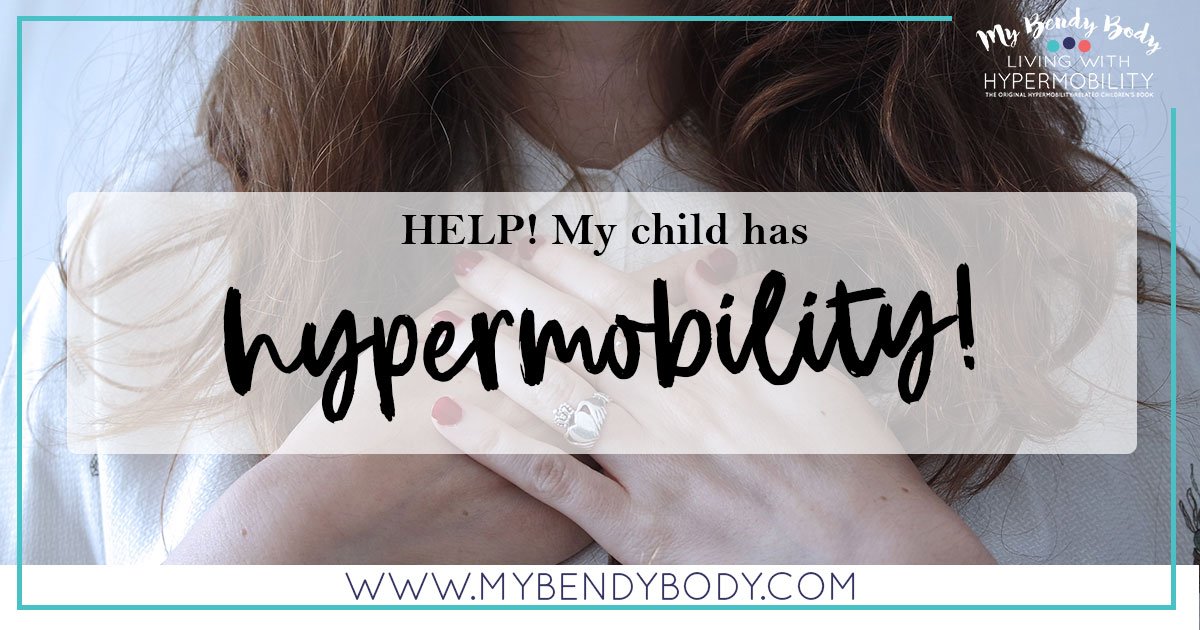HELP! "My child has hypermobility!?"
I was sitting in a local cafe recently and I overheard two mums chatting about their kids. One of the mums was quite distressed, her pre-school age son had just been diagnosed with hypermobility. It's not very common to hear two mums talking about hypermobility in children. She was having a "Help! My child has hypermobility" moment.
Like any mother, she was concerned about how this diagnosis was going to impact her son’s future: "Will he be able to cope with school next year? How are we going to manage all the therapy he needs this year to be ready for school? His dad wants him to be a front-row footballer - that's never going to happen now!". There isn't enough understanding in the general community or even the health community about hypermobility in children (or in adults), which just adds to the confusion.
I felt sorry for this mother but realised I would be overstepping boundaries if I were to butt into their private conversation and try and calm her fears!
One key thing I heard her say was, "I'm really sad for my child". I think this is a feeling that strikes at the core of every parent, especially mums when their child is diagnosed as having joint hypermobility.
"I'm really sad for my child".
I don't think we ever really give mums (or dads) enough time, space or opportunity to explore those feelings. In a myriad of ways, it is a process of grieving a loss. They are grieving for the life they had imagined for their child, which now may or may not go to plan. They are scared about what the future holds. And they are usually confused about where to turn for support.
In most cases, being diagnosed with having hypermobility is scary. This diagnosis fits into a grey area. Your child doesn't have cancer (thank goodness); they don't have diabetes and need insulin (thank goodness); but they do have something that provides them with more challenges than your average kid and, more likely than not, will be a lifelong challenge. You can't cure hypermobility. You can't make it go away.
All you can do is gradually accept it as a different way of life.
The other battle is that most of the people around you actually don't have a clue what hypermobility is, or how it impacts your child. Right?
Despite what you might think at first, there are many positives about being diagnosed with hypermobility as a child, as opposed to later down the road. Early diagnosis can mean early intervention, which hopefully will lead to less damage being done to the body through activities which aren't ideal for the hypermobile body. Another positive is you hopefully won't spend years trying to work out why your child is in pain, or why they are so fatigued or just not coping with life or school. Knowing early allows you to navigate those waters with the knowledge of the cause of all these symptoms.
And the other big benefit I see is that children learn to accept their hypermobile body as just 'their normal'. They don't know anything different; they have nothing to compare it to. It's the way it has always been. It is their only reality. So if they learn from an early age that they have a Bendy Body and have the language to articulate what's going on with their body, they are a whole lot further down the road than the undiagnosed child, with desperate parents trying to find answers.
A diagnosis in preschool or primary years can be a devastating blow, and it needs to be grieved and talked about appropriately. My hope is that parents like this mum I heard talking recently, can, in time (their own time) come to a place of acceptance and realise that it's better to know now than either later, or not at all. That process of acceptance may not happen on its own. Professional support may be required, and that is OK. Completely normal and fine, and good. Talking it through with someone who is not emotionally involved in the life of your child is often just that the thing that is needed. Please don't hesitate to reach out to a psychologist or counsellor for support during this process... and at any time on your family's hypermobility journey.
After all, if you are not OK with it, it’s going to be much harder for your child to be OK.
If you're looking to connect with others who know what it's like to get your head around hypermobility in children, then I have a Facebook group just for parents who have kids who are hypermobile.
